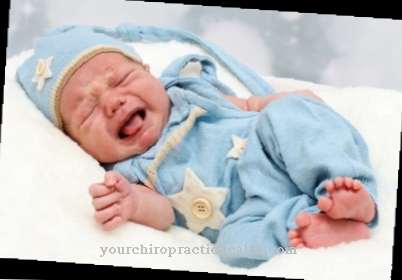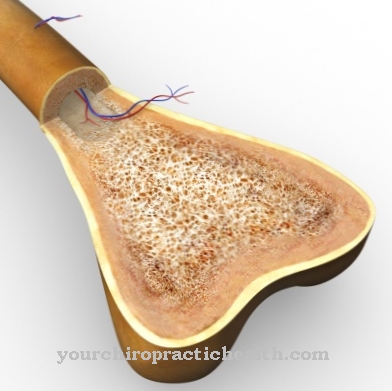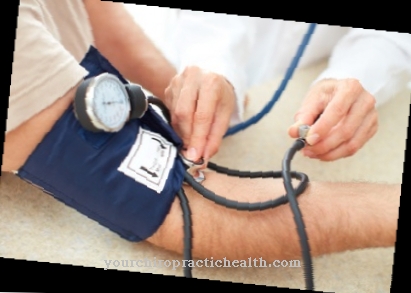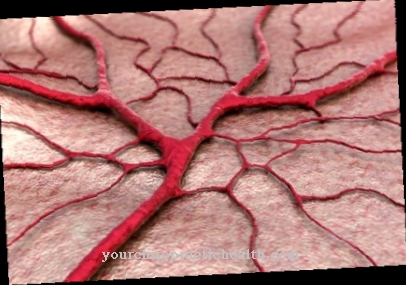The Aging is a natural process. However, many people want to avert it by all means. Advances in medicine have increased life expectancy significantly, but this does not prevent mortality.
What is the aging?

Whether plants, animals or humans, aging affects all living things on earth. People often find it difficult to come to terms with the physical changes that come with aging. Especially in the industrialized countries, where youth and health are culturally set standards of success.
The biological process stands for the slowing down of all chemical and physical processes in living organisms. Stopping the aging process means increasing your life expectancy.
People have always dealt with the question of their own aging and the possibility of extending their lives. It is only recently that science has developed to the point where decisive advances have been made in extending life expectancy.
As people grow old, there are also impairments that can make life difficult and painful. Since today's population in industrialized countries is quite enlightened and has many options open to them, individuals can shape their lives in such a way that the aging process is delayed.
Factors such as a healthy diet, exercise, little stress and a generally positive attitude towards life play a role here. The genetic make-up also has a decisive influence on the speed of the aging process. Today, genetic research even tries to influence hereditary factors in order to cure diseases and stop the aging process.
Function & task
Why we age is not really clear. Nevertheless, the aging of living things is one of the most researched areas of knowledge. This has led to an extreme diversity of opinion about methods of influencing age.
Aging is arranged by nature so that space can be given to the fresh and the young. Aging is not the result of a single process. Many different processes run in parallel and interact with one another.
Most of them are genetically controlled, so they cannot be heavily influenced from outside. Aging is the basis of the theory of evolution. According to this, only the strongest and most capable individuals of a population survive and form the gene pool for new generations.
Biologists now assume that many of the same genes that make the young organism viable are later responsible for its decay. The genetically controlled maintenance systems must above all ensure that the individual survives until reproduction is guaranteed. Cells that are not necessary for reproduction can therefore be dispensed with after reproduction.
After this period of time, the body still has cell reserves, but at some point they too will be used up by environmental pollution, stress and slower cell regeneration. Various processes trigger cell changes that accelerate or initiate the aging process. The aging process is partly controlled by organs, but also influenced from outside.
During the aging process, inflammatory processes can be detected in the tissue, influenced by harmful substances such as free radicals. They arise, for example, from poor nutrition, too much UV radiation, obesity, lack of exercise and are contained in environmental toxins. We ingest them with food or through the skin. If free radicals are in excess, cells are changed or destroyed.
You can find your medication here
➔ Medicines against memory disorders and forgetfulnessIllnesses & ailments
People are looking for ways to postpone death as long as possible. In doing so, they hope to discover methods that can cure diseases such as cancer, diabetes or cardiovascular diseases.
While the life expectancy of humans for the longest period of their existence on earth was at most 30-40 years, thanks to medical progress it has doubled in a few decades. As a result, mankind has to cope with an increasing number of age-related diseases.
These are mainly cardiovascular diseases, cancer and dementia changes in the brain. Medicine and pharmacology can influence many pathogenic processes, but they cannot really prevent aging and death. At some point the body is used up.
Nevertheless, there are typical “old makers” that people should avoid if they want to live healthy for a long time. These include the free radicals, the most aggressive and stubborn factors that affect our entire metabolism. Not only do they destroy the connective tissue of the skin, they are also responsible for many cancers. Antioxidants protect against the effects of free radicals and are contained in, for example, vitamin E, vitamin C, vitamin A and selenium.
A long-term stress level damages the metabolism, because increased cortisol values, which can be found in the blood during permanent stress, attack the immune system. This leads to hardening of the arteries with the risk of heart attacks, strokes and diabetes.
A lack of sleep also accelerates cell aging. Those who sleep a lot have firmer skin the next day and can look forward to more vitality thanks to a greater increase in growth hormones.

Smoking and alcohol play a major role in premature aging. They reduce the blood flow to the skin and all organs. This increases the risk of cardiovascular diseases and strokes. It is believed that 30% of all cancers are caused by smoking.
Osteoporosis also increases with age because the skeleton can no longer store enough calcium. Smoking also speeds up this process. Too much sun is also harmful. It creates wrinkles and pigment spots and significantly increases the risk of skin cancer.
If you minimize these factors, you can lead a longer and healthier life. Nevertheless, a healthy lifestyle cannot change the genes that mainly cause slowed cell regeneration and aging.



























